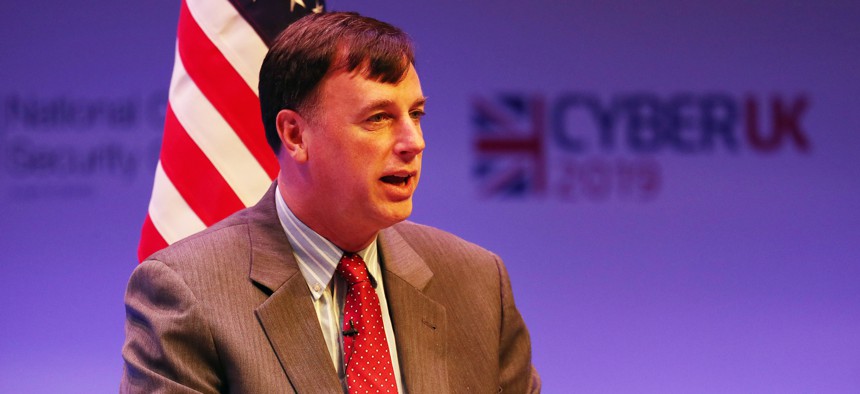NSA cyber director to step down after 34 years of service

NSA Cybersecurity Director Rob Joyce will retire at the end of March. Andrew Milligan/PA Images via Getty Images
His departure comes amid heightened security fears in 2024 and debate over whether to renew a controversial spying power.
NSA Cybersecurity Director Rob Joyce will retire at the end of March after 34 years of service, the agency announced Tuesday.
Joyce has led NSA’s Cybersecurity Directorate since 2021, working with other government and intelligence community officials on protecting U.S. critical infrastructure and other key assets amid ever growing fears about nation-state cyber threats. David Luber, the Cybersecurity Directorate’s second-in-command, will take his place.
An outspoken agency official who would often engage with members of the media about the state of play in cyber policy, he played a critical role in crafting a Trump-era executive order that worked to establish a greater accountability culture among U.S. cybersecurity and IT leaders.
“I am honored to have served for over 34 years at the National Security Agency,” Joyce said in a written announcement. “It has been a privilege to lead the nation’s most talented and dedicated team of cybersecurity professionals. Making a difference in the security of the nation is truly an honor.”
His departure comes at a time when American security officials are on high alert with a presidential election looming in November, as well as several warnings issued by NSA and other intelligence partners this year on the complex attempts from hackers backed by China, Russia and others seeking to sabotage U.S. infrastructure and other centralized economic systems.
The news also comes as the NSA and other intelligence community partners are urging Congress to reauthorize a controversial spying power — known as Section 702 — that the agency argues is an absolute necessity for U.S. national security, with the tool reportedly having been recently used to detect emerging Russian nuclear capabilities in space.
Joyce has also frequently warned of hackers’ attempts to leverage new and emerging technologies, like generative artificial intelligence chatbots that researchers have said can help enhance or optimize malware deployment.
Before CSD, Joyce worked in London as NSA’s cytological policy lead and held positions in the National Security Council, serving as a cybersecurity coordinator to the Oval Office between 2017 and 2018. Between 2013 and 2017, he led the clandestine Tailored Access Operations unit within NSA responsible for foreign cyber warfare and intelligence gathering operations.
“Rob’s leadership of the agency’s critical cybersecurity mission has been exemplary,” NSA and Cyber Command leader Gen. Timothy Haugh said. “His vision and development of the CSD team and its capacities ensures that NSA’s cybersecurity mission is healthy and will continue to be successful in protecting our allies and national systems well into the future.”



